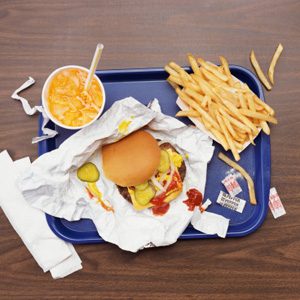don't do this habits
Daily routine bad habits
No matter how long you’ve been living with unhealthy habits, it’s not too late to reverse course. Whether it’s smoking, drinking, over-eating or something else, learn how to start living a happier, healthier life.
1. Eating Too Much Fast Food
Why It’s Dangerous:
A steady diet of double cheeseburgers and fries washed down with an
oversize soft drink often leads to a bigger waistline and other related
health problems, like heart disease and diabetes.
Trans fat, often found in fast food, raises ‘bad’ cholesterol and blood
fats that contribute to hardening of the arteries, as well as firing up
inflammation, which contributes to the build-up of fatty plaque in
artery walls.
Why You Should Stop: The health benefits of switching to a healthy diet are immediate and substantial. Making a permanent lifestyle change isn’t easy. Fast food is super-convenient, surprisingly inexpensive, and thanks to all its fat, salt, and sugar, undeniably tasty. Healthy eating takes more time and thought, but it’s worth it. In addition to losing extra weight, slimming your waistline and protecting yourself from heart disease and diabetes, you’ll save money if you prepare your own meals instead of eating out.
How To Reverse the Habit:
- Wean yourself off slowly: Cut back a little per week and buy a little less each time you go.
- Switch to healthier menu options: Replace pop with coffee or water, burgers with grilled chicken, and fries with a salad.
- End impulse visits: Avoid popping into a fast food joint just because you walked or drove by one, especially if you’re not hungry or it isn’t meal time.
- Switch to grocery stores: Hungry and need a fast meal? You can usually find healthy prepared meals at your local grocery store.
- Try a local sandwich shop: Walk into one and order a turkey on whole-wheat with a salad on the side.
2. Being A Couch Potato
Why It’s Dangerous:
The more TV you watch, the less physical activity you’re getting which
increases your odds of being overweight and developing type 2
diabetes. A large-scale study of over 9,000 people found that those who
watched more than two hours of TV a day ate more, while downing more
sugary soft drinks and high-fat, high-calorie, processed snack foods
than those who watched less. If television is replacing time you’d
spend on an old hobby, visiting friends, or exercising your mind, it
can also speed up memory loss.
Why You Should Stop: By turning TV time into active time and committing to a healthy TV/activity balance, you can burn more calories, become more fit, and quickly reduce your odds for related health problems. You’ll have a fitter body and more time for sleep, plus more energy, a better mood, sharper mind, and more social connections, which can even help you increase your self-confidence.
How To Reverse the Habit:
- Follow the 2/30 rule: That means no more than 2 hours of TV a day-and at least 30 minutes of exercise.
- Don’t channel surf: Only turn the TV on when you have something specific to watch. Get out instead of searching mindlessly.
- Exercise while you watch: Walk in place, do sit-ups, pushups, or drag your treadmill into the TV room.
- Clean during commercials: Avoid food commercials by emptying wastebaskets, vacuuming a room, or doing a load of laundry. It can add up to 20 minutes’ worth of calorie-burning chore time everyday.
- Resolve to leave home more often: See more friends, do more interesting things, and stimulate your mind every day.
(Photo: Thinkstock)
3. Snacking Even When You’re Full
Why It’s Dangerous: Losing touch with your body’s natural hunger
and satisfaction signals can lead to chronic overeating and unhealthy
extra pounds. If it’s junk foods you snack on, you’re also flooding your
body with unhealthy ingredients.
Why You Should Stop: With determination, anyone can fix bad eating habits and get to a healthier, more natural weight. By paying attention to your hunger signals and switching to healthy snacks, you can boost nutrition, control cravings, lose weight, and avoid energy slumps. Your weight will fall to a healthier level and you’ll replace unhealthy trans and saturated fat, sugar, refined carbohydrates and extra sodium with more nutritious fare.
How To Reverse the Habit:
- Reacquaint yourself with hunger: Wait to eat until your body is physically craving food.
- Stop eating before you’re stuffed: Finish when you feel just a little bit full, you’ll eat less this way.
- Eat for the right reason: Because you’re hungry-not because you’re stressed, bored, angry, or sad.
- Stop mindless eating: If snacking is an old, bad habit, ban unhealthy food from your home.
- Replace junk food with real food: Once you’ve cleared your pantry, stock your kitchen with fruits, veggies, nuts, and low-fat, whole-grain products.
4. Smoking
Why It’s Dangerous:
As far as health goes, no popular habit on Earth is as harmful. It
directly causes 30 percent of heart disease deaths, 30 percent of
cancer deaths, and a massive 80 to 90 percent of all lung cancers, not
to mention increasing the risk of developing mouth, throat, and,
bladder cancer. This bad habit also astronomically raises your odds for
heart attacks, strokes, and high blood pressure, on top of possibly
triggering or aggravating breathing problems like bronchitis and asthma
attacks.
Why You Should Quit:
The health benefits are almost immediate, because your lungs and
cardiovascular system begin repairing themselves within minutes of your
last cigarette.
Within a month, your lungs will work better and you should be coughing
less, feel more energetic, and have less shortness of breath. Quitting
smoking significantly reduces threat of cancer or heart disease,
improves your sense of taste and smell, and gives you better endurance.
You’ll also reap confidence-boosting rewards like fresher breath,
younger-looking skin, and an end to that unpleasant tobacco smell on
your clothes.
How To Reverse the Habit:
- Treat it like an addiction, not a habit: Before you stop, prepare for the tough road ahead. Prepare a strategy, a support team, and a Plan B if your first methods fail.
- Ask your doctor about a stop-smoking drug
- Get support: Enlist your friends and family. Counselors, hotlines, and support groups can also help.
- Time it right: Plan to quit during a calm period, not over the holidays or when you’re under a lot of stress. Try ‘nicotine fading’: Use a nicotine patch or gum to help you gradually become accustomed to life without cigarettes and nicotine.
- Remember that a lapse isn’t a failure: Use slip-ups to discover your personal obstacle to quitting and create a plan for dealing with those needs.
5. Overspending Your Way into Debt
Why It’s Dangerous: Money
worries can have serious health consequences. In a Rutgers University
telephone survey, responders said financial stress contributed to high
blood pressure, depression, insomnia, headaches, digestion troubles,
aches and pains, ulcers, excessive smoking and drinking, and gaining or
losing weight.
Why You Should Stop: You’ll regain a hold on your finances. It’s tough, but getting yourself out of debt is a lot like losing weight. It takes time, can be hard on your ego and your lifestyle, you have to be constantly vigilant, and it’s easy to revert back to old habits. But for those who succeed, and many people do, the results are stunning. You’ll feel more in control of your life with less stress and fewer worries. Finding ways to curb your spending and focus on the simple joys in life will also help improve your relationships.
How To Reverse the Habit:
- Learn about money management: Educate yourself on the the basic rules and methods of personal finance-for credit cards, mortgages, budgeting, and investing.
- Freeze your credit cards: Literally. Put them in a cup, add water, and relegate them to the back of your freezer so you’ll stop using them.
- Create a budget: How much money is coming in each month? How much are you spending on essentials, and how much frivolously? Keep track, and discover what you need to cut back on.
- Pay at least the monthly minimum on your bills: Prioritize paying more on the highest-interest credit card. Once you’ve paid it off, move on to the next worst.
- Automate good monthly habits: Use online banking to transfer some of your paychecks into a savings account, and set your bills to be paid automatically.









Comments
Post a Comment